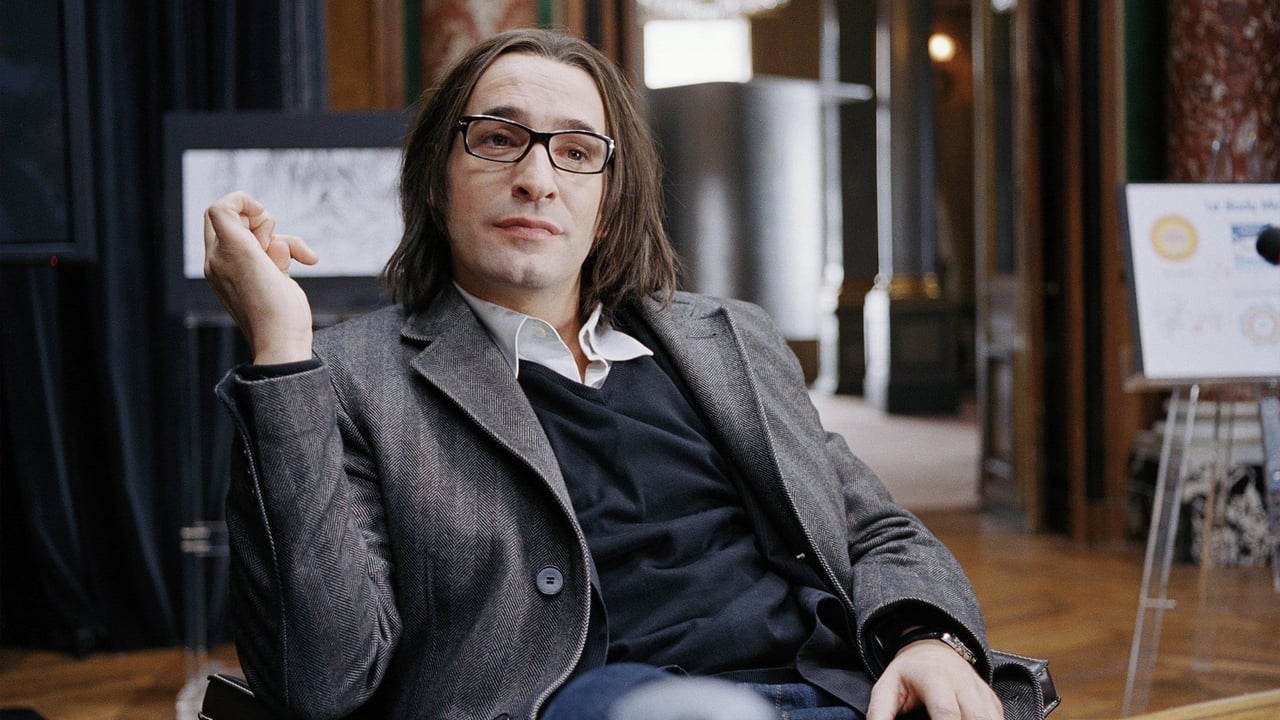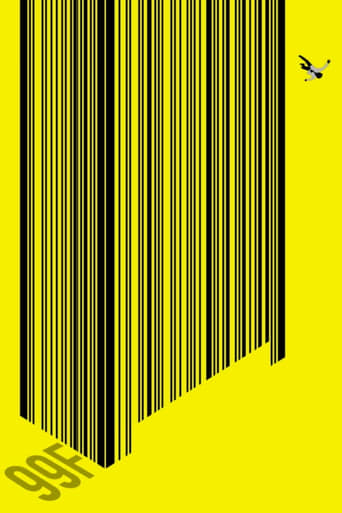

Good concept, poorly executed.
... View MoreDon't listen to the Hype. It's awful
... View MoreA Major Disappointment
... View MoreIt is encouraging that the film ends so strongly.Otherwise, it wouldn't have been a particularly memorable film
... View MoreJan Kounen's adaptation of Frédéric Beigbeder's bestseller has, to put it in wiki lingo, multiple issues. First, it commits the deadly sin of literature adaptations: excessive off-the-screen narration by the main character Octave, an abusive, drug-addicted advertisement creative. There's a lot of plot development which is never on-screen, and the narrator tries to do exactly what he blames the advertisement business for: lead us astray.That's the second weak point of this film: by following the main character's viewpoint, it invests advertisement with almost god-like power. However, studies in the field (as one's own living experience) do not confirm a definite impact of advertisement on consumer choice. If you are aware of this, and especially if you are a woman, and most especially if you are a homemaker, you may find the constant bickering on the ease of manipulating (female) minds rather off-topic and sexist. To be fair, this irritating aspect is faithful to the novel.But to conclude with the third and major flaw of the film: the stereotypes don't allow for any social statement. If larger-than-life characters keep dishing it out against society and each other, where is the social comment? And if it's a drama, why not focus on the main events - Octave's falling out with his job and lifestyle, and his incapability to admit his feelings to the only woman he's ever loved? Instead, the viewer is being bombarded with F/X and heavy visual leanings on Spike Jonze, the Coen Brothers and Terry Gilliam, leading more or less nowhere.The sad thing is: when there's no talk and no abuse, this is actually excellent stuff. A wordless 'alternative ending' really does what the rest of the film was only gibbering about: deliver an accurate summary on how the wish to make one's life less twisted will ultimately remain a (death) wish for the 'civilized' man. More of such imagery, and this would have been a masterpiece.
... View More99 Francs is French filmmaker Jan Kounen's critique of consumer culture, based on the book of the same title by Frédéric Beigbeder. After 1 hour and 40 minutes of slick film-making, replete with ironic references to famous ad campaigns, beautiful people and lots of sex and drugs and rock & roll, the movie ends with a meek call to action stating that with a mere fraction of the money spent on advertising each year, we could put an end to world hunger. This astonishingly lame ending undermines any value the movie might have had.I suppose the altruistic blurb at the end of the movie is the kind of palliative the filmmakers needed to include in order to convince themselves that their movie has a higher moral purpose. The question is, why do they even bother? In reality, it is just a story about a narcissistic, self-loathing fashion victim who sees the error of his ways. The great irony, of course, is that had they spent all their time and money on charitable projects instead of making this movie, they could have contributed much more to ending world hunger.Himself an ex-creative adviser for an ad agency, Beigbeder wrote 99 Francs under the encouragement of another famous French author, Michel Houellebecq. Octavo, the main character, hoovers cocaine in rails forming the numbers 666, pops whatever pills he can get his hands on, screws hookers, drives under the influence, and , in his spare time, works for France's most powerful ad agency as a creative adviser. After a drug-fueled escapade in which several people might have been hurt, he decides to redeem himself. The movie offers two endings - one happy, one sad - and they both have him renouncing his consumerist lifestyle: one treats him as a Christ-like martyr, the other has him living out a Rousseauian back-to-nature fantasy on an island. Grade school stuff, I know, but not so awful as it sounds.In the adept hands of Jan Kounen, the movie is visually-engaging, rhythmic, and yes, entertaining. The problem is the story. Just like the book, the overall feeling is one of disingenuousness. Remember the scene in Fight Club where Tyler Durden goes on about the superficiality of our consumer lifestyle? "You're not how much money you have in the bank. You're not the car you drive. You're not the contents of your wallet. You're not your f***ing khakis." Somehow, a hot-$hit guy dressed in fashionable clothes isn't the most convincing of anti-consumerism preachers. That's kind of what happens in 99 Francs.Even with the main character's redemption, 99 Francs gives the impression that it is more intent on looking cool than trying to open people's eyes to the evils of consumerism. Basically, Jan Kounen and Frédéric Beigbeder deliver us the cinematic equivalent of putting a "Stop Global Warming" bumper sticker on a gas-guzzling Hummer.
... View MoreWatching this film will give some critical ideas about consumerism, dirty ideas of ad business, also lifestyle of people working in advertising business in France. The ideas are different from all full of humor American TV series about advertisers (e.g. "I Dream of Jeannie" and others). The ideas are different, though there are many elements of black humor, criticism of machos' vices, The critical idea is the didactic message of the film. The film reminds that people would not die of hunger if more money are spent not for creating ads to increase turnover, also true critical insights about consumerism, the idea that advertising in many cases sell only dreams for some time.The plot of the film is also full of visual experiments, some elements of animated cartoons, some repeated episodes which get more meaning at the end of the movie. Also the end of the film obviously make the viewer think more deeply about the nature of the change of the human being discarding commercial things.It is worth to spend time watching this French film full of experiments and critical ideas about consumerism.The book of Begbeider and the film are truly two different things, which add more ideas about critical insights about consumerism, advertising business.
... View MoreThis movie was made like a giant advertising with very rhythmic effects and fast moving pictures. At least, it will keep the eye entertained during the whole movie but there's more in it. It describes in a fun way what everybody knows is a sad world. Drugs, sex parties, late work hours, pretentious people, and meetings with stupid people, this is the way it works in the advertising industry. It's a very funny criticism of advertising and the way it's made. I feared it would not do justice to Beigbeder's excellent book but in fact it's quite good.Most of all, Jean Dujardin is very good in his role. He could be one of those mens you see working at Publicis on the champs Elysees ! Some people may not like the movie because there is a lot of sex and drug taking inside the movie. Yet, it's a good social depiction of this world. Don't go with the children's (the rating is not very explicit about the real content of the film) and enjoy yourself.
... View More